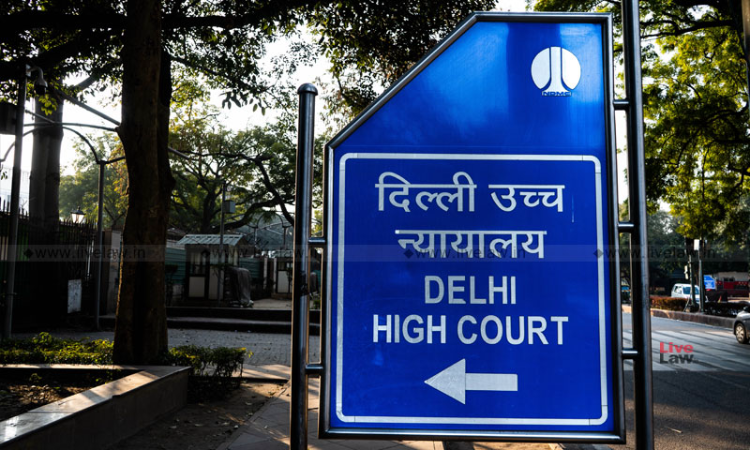- Home
- /
- High Courts
- /
- Delhi High Court
- /
- Compulsory Retirement Over...
Compulsory Retirement Over Conviction 'Disproportionate' When Court Released Employee On Probation: Delhi High Court
LIVELAW NEWS NETWORK
14 Aug 2025 12:30 PM IST
The Delhi High Court has reinstated an Air Force Accounts Auditor who was compulsorily retired from service following his conviction for dowry harassment under Section 498A of IPC.A division bench of Justices Navin Chawla and Renu Bhatnagar found the punishment 'disproportionate' especially in light of the fact that the Petitioner-employee had been shown leniency by the criminal court...
The Delhi High Court has reinstated an Air Force Accounts Auditor who was compulsorily retired from service following his conviction for dowry harassment under Section 498A of IPC.
A division bench of Justices Navin Chawla and Renu Bhatnagar found the punishment 'disproportionate' especially in light of the fact that the Petitioner-employee had been shown leniency by the criminal court itself, which released him on probation under the Probation of Offenders Act, 1958. It observed,
“when a criminal court has extended leniency by granting the benefit of the PO Act, to the petitioner, the Disciplinary Authority's decision to impose the one of the harshest departmental penalties of compulsory retirement appears disproportionate and excessive.”
The Court also took into account the case of a co-employee, who has been convicted for the same offence, under Section 498A IPC and was not extended the benefit of PO Act but was retained in service by the department.
Petitioner was convicted for the offence by a Magistrate Court but allowed the benefit under the Probation of Offenders Act by the Sessions Court.
He had approached the High Court challenging compulsory retirement from service with effect from September 30, 1997.
It was argued that the penalty imposed upon him is “grossly disproportionate”, particularly when compared to the lesser penalties awarded to other similarly placed delinquent.
Disciplinary authority on the other hand claimed that release on probation does not extinguish conviction and when a Government servant has been convicted on grounds of moral turpitude, there is ample justification for holding the view that retention of such individual in public service is not desirable.
The Appellate Authority had said that while there may be similarity in respect of basic charge, there is difference in conduct of both the persons and the degree of actions which led to their respective convictions and thus, the two cases cannot be considered equal.
The High Court observed that the object of the Probation of Offenders Act is reformative, enabling the offender, particularly first-time convicts, to reintegrate into society without undergoing the rigors of incarceration.
Further, it pointed, Section 12 of the said Act provides that a person released on probation under Section 4 shall not suffer any disqualification or disability attached to a conviction under any other law.
Thus, it held, “the conviction may stand, but its adverse legal consequences are neutralized to ensure that the offender is not permanently handicapped in civil life.”
As such, the Court directed that the petitioner be reinstated in service with effect from the date of his Compulsory Retirement, granting him notional seniority and other service benefits considering him to be in service throughout the period between his dismissal.
However, it clarified that the petitioner will not be entitled to grant of any pay and other emoluments/allowances for the period between the date of Compulsory Retirement from service to the date of his reinstatement.
Appearance: Mr.Anil Nariya, Ms.Sumita Hazarika, Mr.Prakhar Gupta, Ms. B. Naaz Jain, Advs for Petition; Mr. Piyush Beriwal, Ms.Jyotsana Vyas, Ms.Amisha P.Dash, Advs. for R-1 to 3.
Case title: Satya Pal Singh v. Union of India
Citation: 2025 LiveLaw (Del) 966
Case no.: W.P.(C) 7892/2023



